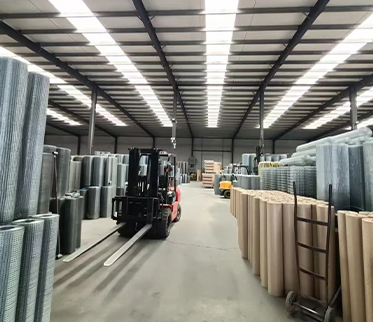-
 Afrikaans
Afrikaans -
 Albanian
Albanian -
 Amharic
Amharic -
 Arabic
Arabic -
 Armenian
Armenian -
 Azerbaijani
Azerbaijani -
 Basque
Basque -
 Belarusian
Belarusian -
 Bengali
Bengali -
 Bosnian
Bosnian -
 Bulgarian
Bulgarian -
 Catalan
Catalan -
 Cebuano
Cebuano -
 China
China -
 Corsican
Corsican -
 Croatian
Croatian -
 Czech
Czech -
 Danish
Danish -
 Dutch
Dutch -
 English
English -
 Esperanto
Esperanto -
 Estonian
Estonian -
 Finnish
Finnish -
 French
French -
 Frisian
Frisian -
 Galician
Galician -
 Georgian
Georgian -
 German
German -
 Greek
Greek -
 Gujarati
Gujarati -
 Haitian Creole
Haitian Creole -
 hausa
hausa -
 hawaiian
hawaiian -
 Hebrew
Hebrew -
 Hindi
Hindi -
 Miao
Miao -
 Hungarian
Hungarian -
 Icelandic
Icelandic -
 igbo
igbo -
 Indonesian
Indonesian -
 irish
irish -
 Italian
Italian -
 Japanese
Japanese -
 Javanese
Javanese -
 Kannada
Kannada -
 kazakh
kazakh -
 Khmer
Khmer -
 Rwandese
Rwandese -
 Korean
Korean -
 Kurdish
Kurdish -
 Kyrgyz
Kyrgyz -
 Lao
Lao -
 Latin
Latin -
 Latvian
Latvian -
 Lithuanian
Lithuanian -
 Luxembourgish
Luxembourgish -
 Macedonian
Macedonian -
 Malgashi
Malgashi -
 Malay
Malay -
 Malayalam
Malayalam -
 Maltese
Maltese -
 Maori
Maori -
 Marathi
Marathi -
 Mongolian
Mongolian -
 Myanmar
Myanmar -
 Nepali
Nepali -
 Norwegian
Norwegian -
 Norwegian
Norwegian -
 Occitan
Occitan -
 Pashto
Pashto -
 Persian
Persian -
 Polish
Polish -
 Portuguese
Portuguese -
 Punjabi
Punjabi -
 Romanian
Romanian -
 Russian
Russian -
 Samoan
Samoan -
 Scottish Gaelic
Scottish Gaelic -
 Serbian
Serbian -
 Sesotho
Sesotho -
 Shona
Shona -
 Sindhi
Sindhi -
 Sinhala
Sinhala -
 Slovak
Slovak -
 Slovenian
Slovenian -
 Somali
Somali -
 Spanish
Spanish -
 Sundanese
Sundanese -
 Swahili
Swahili -
 Swedish
Swedish -
 Tagalog
Tagalog -
 Tajik
Tajik -
 Tamil
Tamil -
 Tatar
Tatar -
 Telugu
Telugu -
 Thai
Thai -
 Turkish
Turkish -
 Turkmen
Turkmen -
 Ukrainian
Ukrainian -
 Urdu
Urdu -
 Uighur
Uighur -
 Uzbek
Uzbek -
 Vietnamese
Vietnamese -
 Welsh
Welsh -
 Bantu
Bantu -
 Yiddish
Yiddish -
 Yoruba
Yoruba -
 Zulu
Zulu
Understanding the Environmental Impact and Recycling Challenges of LDPE Plastic Bags
The Environmental Impact of LDPE Plastic Bags and the Shift Towards Sustainability
In today's world, plastic bags have become a ubiquitous part of our daily lives. Among them, low-density polyethylene (LDPE) plastic bags are particularly common, often seen in grocery stores, retail shops, and various packaging applications. While they provide convenience and utility, the environmental implications of their widespread use are profound and far-reaching. This article explores the properties of LDPE plastic bags, their environmental impact, and the potential pathways towards a more sustainable future.
The Environmental Impact of LDPE Plastic Bags and the Shift Towards Sustainability
The environmental impact of LDPE plastic bags is most apparent when we consider their contribution to plastic pollution. Once discarded, these bags often end up in our oceans, rivers, and landscapes, where they can harm marine and terrestrial wildlife. Animals may ingest plastic bags, mistaking them for food, which can lead to malnutrition, internal injuries, or even death. The presence of plastic in the environment is not only harmful to wildlife but can also disrupt entire ecosystems.
ld plastic bags

To combat the negative effects of LDPE plastic bags, many countries and local governments have started to implement policies aimed at reducing plastic use. Bans on single-use plastic bags, taxation on plastic shopping bags, and promotion of reusable alternatives are some of the strategies being employed. For instance, cities like San Francisco and New York have enacted laws to discourage the use of plastic bags, encouraging consumers to bring their reusable bags instead. These legislative measures serve to raise awareness about the environmental repercussions of plastic waste and motivate individuals to adopt more sustainable habits.
In addition to legislation, consumer behavior is gradually changing, with a growing number of individuals opting for reusable bags made from cotton, jute, or other eco-friendly materials. These alternatives not only minimize environmental impact but also provide consumers with a fashionable and practical means of carrying goods. Companies and retailers are also responding to this shift by offering incentives for customers who bring their reusable bags, further promoting sustainable practices.
Despite the progress being made, the transition away from LDPE plastic bags is not without challenges. Some consumers remain resistant to change due to convenience, economic factors, or a lack of awareness regarding the implications of plastic excess. Education plays a crucial role in fostering a culture of sustainability, and it is imperative for both individuals and organizations to advocate for environmentally friendly practices.
In conclusion, while LDPE plastic bags offer undeniable convenience, their environmental consequences are a pressing concern that cannot be ignored. As we continue to grapple with the plastic pollution crisis, it is essential to reconsider our reliance on such materials and embrace more sustainable alternatives. Through a combination of legislative action, consumer awareness, and individual commitment to change, we can reduce our dependence on LDPE plastic bags and move towards a healthier planet for future generations. The journey towards sustainability requires collective effort and responsibility, and every small action counts in making a meaningful impact.
-
Shipping Plastic Bags for Every NeedNewsJul.24,2025
-
Safety Netting: Your Shield in ConstructionNewsJul.24,2025
-
Plastic Mesh Netting for Everyday UseNewsJul.24,2025
-
Nylon Netting for Every UseNewsJul.24,2025
-
Mesh Breeder Box for Fish TanksNewsJul.24,2025
-
Expanded Steel Mesh Offers Durable VersatilityNewsJul.24,2025











